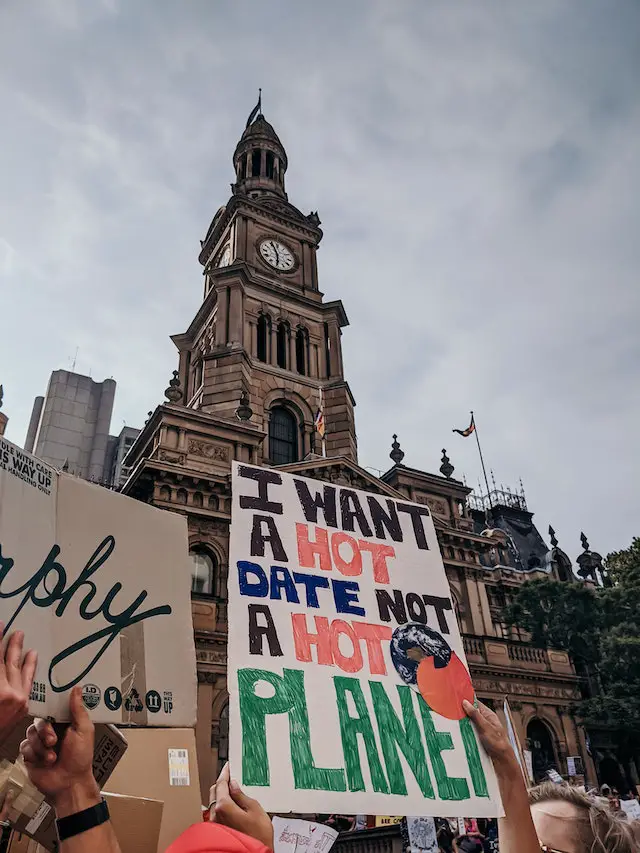
Climate change is an urgent global issue that poses significant challenges for all of humanity. However, millennials and future generations will bear the brunt of its long-term consequences. In this post, we will delve into the effects of climate change specifically on millennials and discuss why it is crucial for this generation to take action. By understanding the implications, we can foster a sense of urgency and inspire collective efforts to mitigate and adapt to the effects of climate change.
Health
- Health Impacts: Climate change has far-reaching effects on human health, and millennials are particularly vulnerable. Here are some key points to consider:
a) Increased Heat-Related Illnesses: Rising global temperatures can lead to more frequent and intense heatwaves, increasing the risk of heat-related illnesses and heatstroke. Millennials may experience reduced productivity, increased healthcare costs, and decreased quality of life as a result.
b) Air Pollution: Climate change exacerbates air pollution, contributing to respiratory issues such as asthma, allergies, and other respiratory diseases. This can significantly impact millennials’ overall well-being and lead to higher healthcare costs.
c) Mental Health Challenges: The psychological toll of climate change cannot be ignored. Millennials face increased anxiety, stress, and eco-grief due to concerns about the future. The loss of biodiversity, natural disasters, and the displacement of communities can have profound psychological impacts.
Economics
- Economic Consequences: Climate change poses significant economic challenges, impacting millennials’ financial well-being and future prospects. Consider the following aspects:
a) Increased Costs of Living: Rising sea levels, extreme weather events, and disruptions to agriculture can lead to higher food prices and housing costs. Millennials may face financial strain due to increased energy bills and insurance premiums.
b) Job Market Disruptions: Climate change can reshape industries and job markets. As the world transitions to a low-carbon economy, certain industries may decline while others emerge. Millennials must adapt their skillsets to stay competitive in a rapidly changing job market.
c) Economic Inequality: Climate change exacerbates existing social and economic inequalities. Marginalized communities, including many millennials, often bear the brunt of its impacts, experiencing higher risks and limited resources for adaptation.
Environment
- Environmental Challenges: Millennials inherit a planet deeply affected by climate change. The environmental implications are vast and require immediate attention:
a) Loss of Biodiversity: Climate change threatens biodiversity, leading to the extinction of species and disrupting ecosystems. Millennials may witness the loss of iconic wildlife and the degradation of natural habitats.
b) Natural Disasters: Extreme weather events, such as hurricanes, floods, and wildfires, are becoming more frequent and intense due to climate change. Millennials are experiencing firsthand the devastating effects of these disasters on lives, homes, and communities.
c) Water Scarcity: Climate change impacts the availability of clean water, a vital resource for human survival. Millennials may face water scarcity challenges, affecting agriculture, drinking water supplies, and overall quality of life.
Solutions
While it’s easy to identify the problem and its causes, we have to be engage in more solution oriented talks to combat this problem. So, here are a few opportunities that present themselves to millennials that will help them fight against climate change:
- Get involved in climate activism. There are many ways to get involved in climate activism, from attending protests and rallies to volunteering for environmental organizations. Millennials are uniquely positioned to be leaders in the fight against climate change, as they are the generation that will be most affected by its effects.
- Make sustainable choices in their daily lives. This includes things like reducing their energy use, eating less meat, and recycling. By making small changes in their everyday lives, millennials can make a big difference in the fight against climate change.
- Support and/or create sustainable businesses. There are many businesses that are committed to sustainability. By choosing to support or even create these types of businesses, millennials can help to create a more sustainable economy.
- Get educated about climate change. The more you know about climate change, the better equipped you will be to make a difference. There are many resources available to help you learn more about climate change, such as books, websites, and documentaries.
- Vote for climate-friendly candidates. VOTING MATTERS. POLICY MATTERS. When you vote, you are making a choice about the future of our planet. Choose to vote for candidates who are committed to taking action on climate change. Be sure to research whose pockets those politicians are in.
- Become a mentor to younger generations. Millennials can help to educate and inspire younger generations about climate change. By sharing your knowledge and passion, you can help to create a more sustainable future.
The effects of climate change on millennials and future generations are profound and wide-ranging. From health impacts and economic challenges to environmental disruptions, the urgency to act is evident. Millennials have a unique opportunity to drive change, demanding climate action, and implementing sustainable practices in their personal and professional lives. By advocating for renewable energy, supporting climate policies, adopting sustainable lifestyles, and engaging in grassroots movements, millennials can shape a sustainable and resilient future. It is imperative for this generation to unite and take action to mitigate the effects of climate change, ensuring a livable planet for future generations. Together, let’s build a world that prioritizes the well-being of people and the planet.

